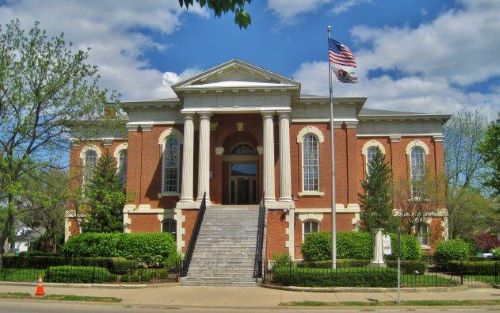Suspended lawyer can't reveal what happened to missing wife of former client, appeals court says

The Illinois Appellate Court’s Third District has ruled against suspended lawyer Joel A. Brodsky. Photo from IllinoisCourts.gov.
An Illinois appeals court has upheld a gag order preventing suspended lawyer Joel A. Brodsky from revealing what happened to the missing fourth wife of a former client.
The Illinois Appellate Court’s Third District ruled Dec. 2 against Brodsky, citing his “obvious lack of respect for the attorney-client privilege.”
The appeals court said the gag order “was neither overbroad nor vague,” and it fell within an exception to the ban on prior restraint. It was “astonishing” that Brodsky would threaten to reveal the information, the appeals court said.
Brodsky had represented a former Chicago-area police officer, Drew Peterson, who was convicted in 2012 for killing his third wife, Kathleen Savio. Brodsky threatened to reveal the information about Peterson’s fourth wife after Peterson claimed ineffective assistance of counsel.
Brodsky told WGN News in May 2022 that the unsolved disappearance of Peterson’s fourth wife, Stacy Peterson, weighed on his conscience, and he was “thinking about maybe revealing what happened to Stacy and where she is.” He also referenced Peterson’s third wife and said he knew everything about both wives.
Peterson filed an emergency motion to prevent Brodsky from revealing the information. Peterson argued that Brodsky was a potential witness in the ineffective-assistance claim, and the court should preserve the integrity of the process by issuing a gag order.
The judge, previously identified as Edward A. Burmila Jr. of Will County, Illinois, granted Peterson’s motion. Brodsky had tried to speak during the gag-order hearing, but Burmila said he wasn’t a party to the hearing and should “just have a seat.”
On appeal, Brodsky argued that the judge lacked jurisdiction, the gag order was an unconstitutional prior restraint on speech, the motion was legally insufficient, and Peterson waived privilege in connection with communications relating to Stacy Peterson.
The appeals court rejected those arguments. On the prior restraint issue, the appeals court said courts have recognized an exception to the ban on prior restraint for disclosures that would present “a reasonable likelihood of a serious and imminent threat to the litigants’ right to a fair trial.”
The appeals court also noted that ethics rules bar lawyers from making public statements that would pose a “serious and imminent threat” to the fairness of a proceeding.
“Brodsky could not be allowed to so brazenly threaten to disseminate, to the public, the contents of the privileged communications at issue in this case,” the appeals court said.
“Few people in the history of Illinois jurisprudence have achieved Drew Peterson’s level of notoriety. We find it nearly inconceivable that any revelation about Stacy would not taint the jury pool should Peterson receive a new trial.”
Brodsky’s suspension has expired, but he has not applied to reinstate his law license, the appeals court said in a footnote.
Hat tip to WGN 9, which had coverage of the decision.
Write a letter to the editor, share a story tip or update, or report an error.



